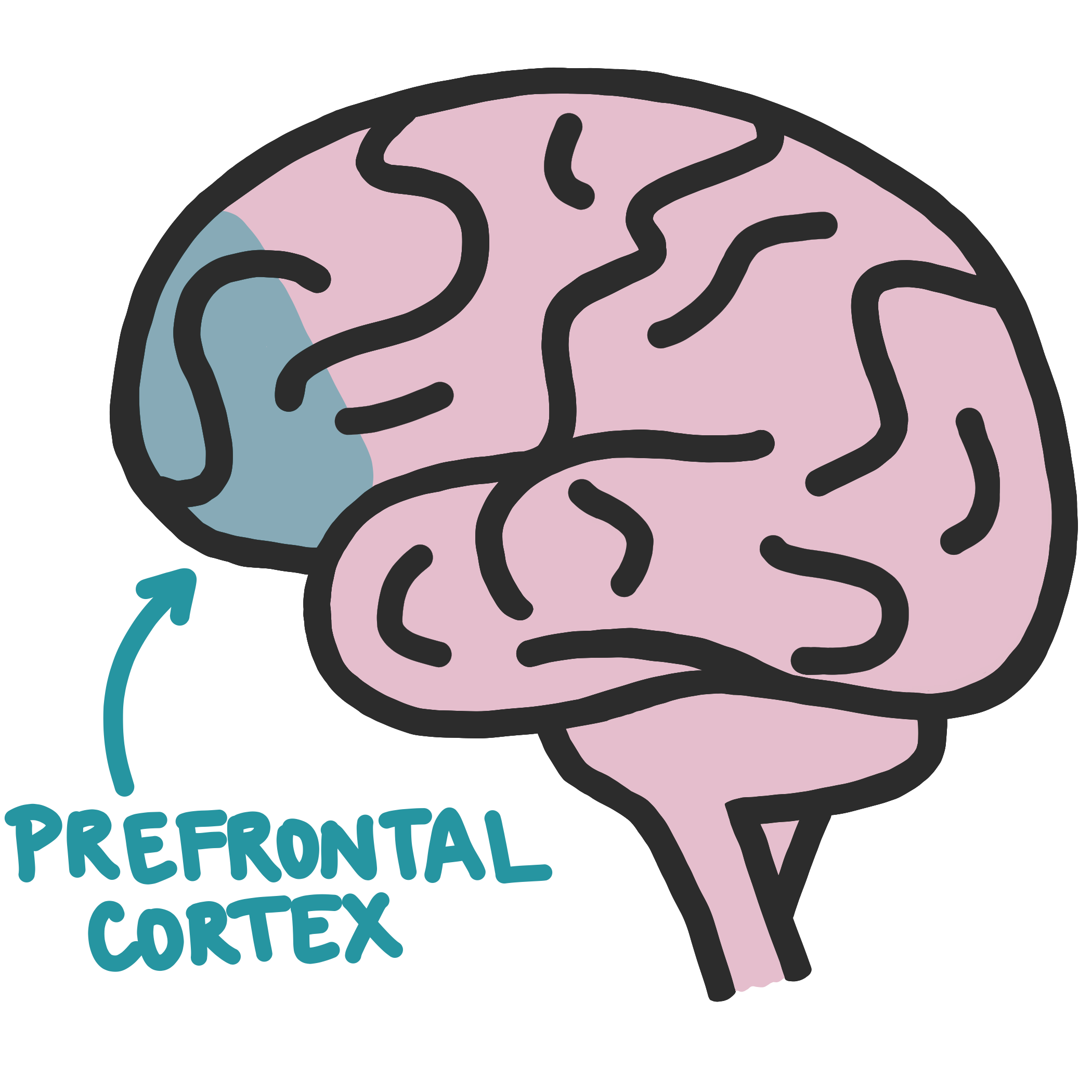

Joni first came to realize she wanted to study the brain in high school. Originally, she enjoyed debates about philosophy where she could exercise her intellectual curiosity, but quickly became dissatisfied as she realized you could argue ad infinitum but never get closer to the truth. Her interests therefore shifted to the brain and consciousness. “Like a lot of nerds in the 80’s”, she says, “I enjoyed reading books authored by Daniel Dennett and Douglas Hofstadter.” These works sparked an interest in a field that did not yet exist at the time: cognitive neuroscience.

Around this time, there was another profound factor in Joni’s personal life that shaped her intellectual direction: she was presenting as male and was a closeted crossdresser. She tried to stop herself from engaging in this behavior, but it was a powerful compulsion. Trying to understand this compulsive behavior — and herself — drew her to psychology and neuroscience. It took her decades to understand that the compulsion to crossdress was driven by being born as the wrong gender. Even today, Joni’s research is still informed by this period of her life, as her lab investigates compulsive behavior and decision-making.
There were not many undergraduate programs available in England, or anywhere in the world, that catered to Joni’s interests in cognitive neuroscience. After getting rejected from the University of Cambridge, Joni entered the University of Manchester for a joint honours degree in Psychology and Neuroscience. “I’d go from a class about Freudian psychoanalysis to a class about the lobster central pattern generator,” she recalls. This put her on track for being spread across psychology and neuroscience for the rest of her life. She never felt lost studying in a field that had yet to be defined. On the contrary, she felt drawn to the unanswered questions, which eventually led her to study the prefrontal cortex, a region at the very front of the brain that controls numerous high-level cognitive functions including complex decision-making and goal-directed behaviors. Given the higher-order nature of these functions, trying to elucidate the organization and signaling within the prefrontal cortex was an incredibly challenging task with a wealth of unanswered questions that Joni was excited to investigate.

As a capable young scientist with a deep interest in understanding the brain, Joni considered the pursuit of a PhD and a career in academia the default route for herself. She was successful in her application to the University of Cambridge this time around, and joined the Departments of Anatomy and Experimental Psychology for her PhD. She had three choices of methodology to pursue the study of the prefrontal cortex: human functional MRI, rodent neurophysiology, or primate neurophysiology. “Like most primate neurophysiologists,” she says, “I got here by a process of elimination. It’s such a difficult method that you only do it once you’ve decided there is no other way to get the answer you want. For me, it was the best choice for studying a brain region involved in higher-level cognitive processes at the single-neuron level.”

Joni’s post-PhD plan was to pursue a postdoc in the United States and then return to England to start her own primate neurophysiology lab. She moved to Boston for a postdoc at MIT, but her plans changed as she came to realize the efficiency of the research system in the U.S. and the lack of primate neurophysiology work in England. Joni therefore decided to stay in the U.S. After her postdoc, she moved across the country to the University of California, Berkeley, where she now runs her own lab as a Professor in the Department of Psychology and the Helen Wills Neuroscience Institute.

In reflecting on her career, Joni does not believe she would have become a scientist if she had been born as a cisgender woman. “If I’d ever been told I wasn’t cut out for science, I don’t think I would have pushed back,” she says, “but instead, I was male and good at science, and becoming a scientist was the default.” She wonders if she would have considered more female-dominated fields as a cisgender woman. Nevertheless, she does not at all regret her decision to become a principal investigator. “Academia allows me to pursue my passion of exploring unanswered questions. And besides, I don’t think I could handle having a boss telling me what to do.” In her free time, she enjoys eating out, live music, and the city nightlife. “Everything COVID has taken away,” she says. To survive the pandemic, she has returned to her “nerd” roots: playing Dungeons and Dragons with her boyfriend’s children.